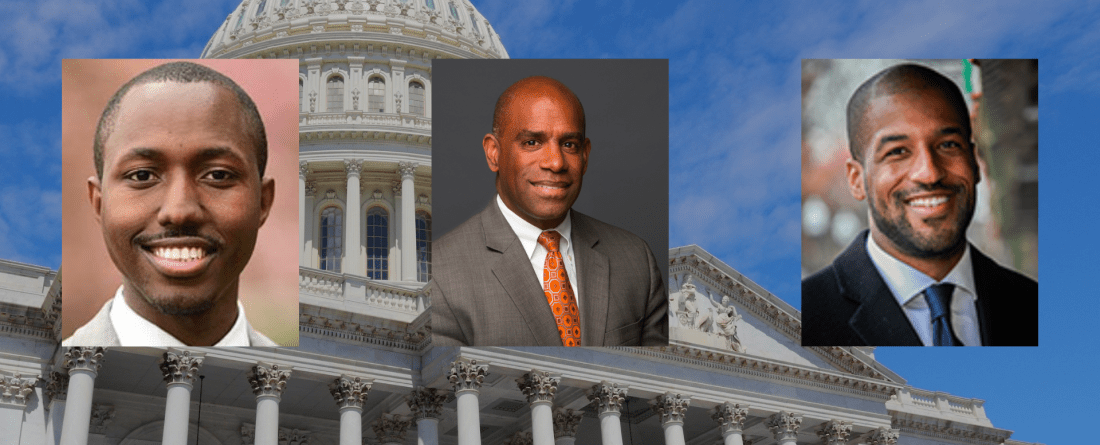
On October 1, hosted a webinar discussing social and cultural inequalities that Black men face in public policy. “Navigating BOTH (The Bottom of the Hill): Reflections and Forethought of Black Men in Public Policy” examined the challenges Black men face in decision-making and leadership positions.
Panelists included:
- Mark Conway '13, Councilmember, 4th District Baltimore City
- Jazz Lewis '14, Maryland State Delegate, 24th Legislative District in Prince George's County
- Paul N.D. Thornell, Principal, Mehlman Castagnetti Rosen & Thomas
- Ricco Hall (moderator), Lecturer, School of Public Policy
Ricco Hall, lecturer at SPP and moderator of the webinar, started the conversation of the challenges Black men face in the policy. While presenting disparate numbers in leadership roles at all levels of government, Hall discusses how Black men have the least access to social capital resources to support job obtainment and career advancement.
Furthermore, the panel explored how professional environments are significant settings where Black men in government encounter negative racial-gendered images. These negative encounters experienced early in their careers have the potential to determine the course and trajectory of their career outcomes by significantly shaping social networks and future occupational outcomes. Each panelist shared their personal experiences as policy students and professionals at the University of Maryland, mentioning the lack of equity and representation at the local, state, and federal levels.
Panelists also touched on the lack of black professors at the School of Public policy to share different policy experiences in academia. Jazz Lewis, an alumnus from the school of public policy, mentioned: "intentional recruitment as one of the recommendations that the School of Public Policy should implement to be more inclusive."
Other suggestions included creating an exciting curriculum that is inclusive and diverse for various groups of students and intentional engagement with these diverse populations
Overall, the panelists agreed that organizations should hire more diverse policy professionals and create a curriculum for the community of color to feel represented and engaged, while also giving hopeful advice to the students attending
"Do informational interviews with potential mentors in the industry and career you like,” said Conway “People are willing to share opportunities they know about with young people of color."



